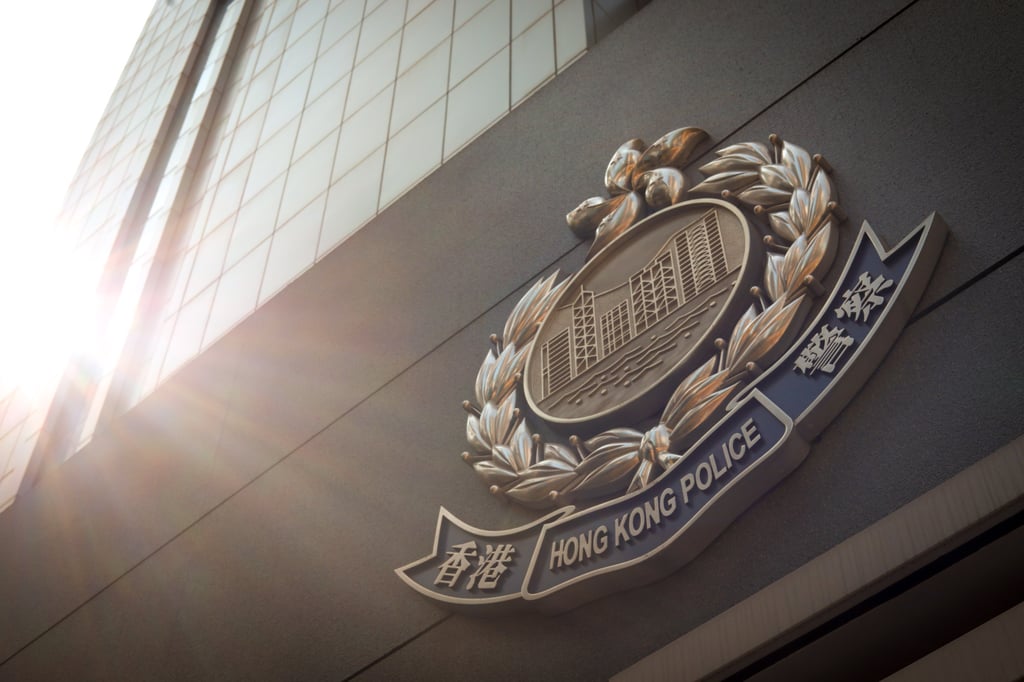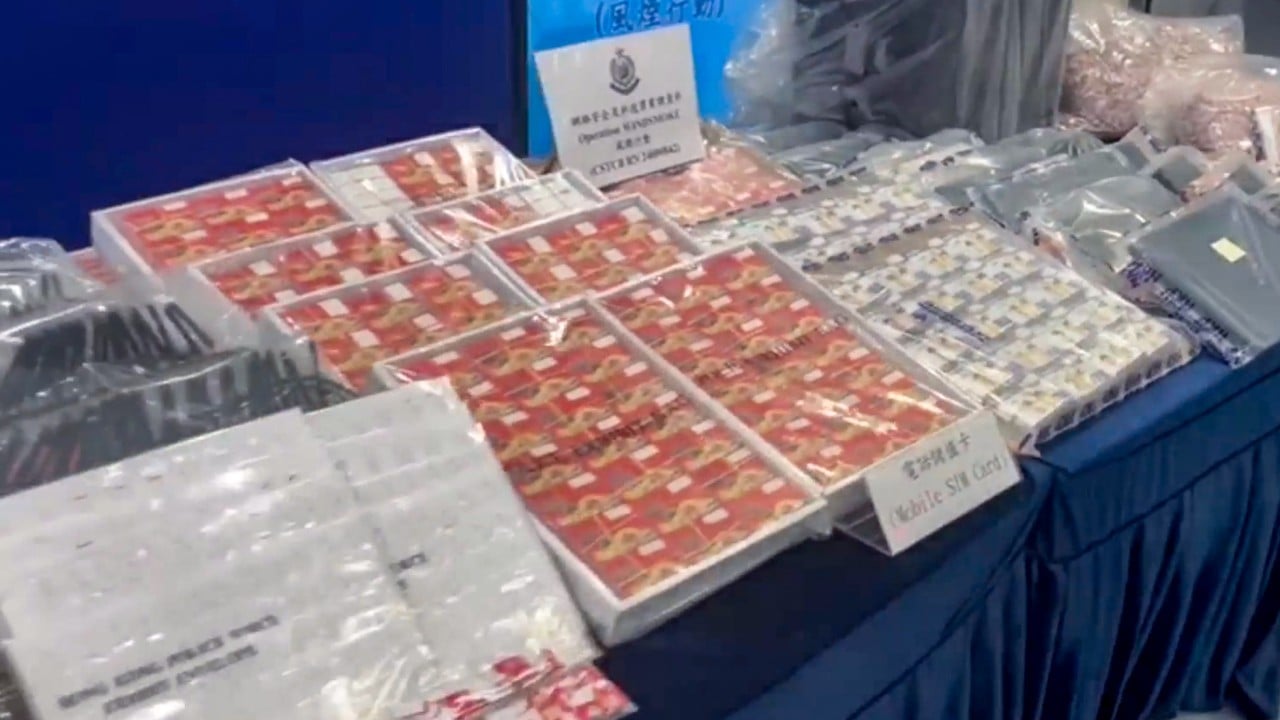Hong Kong police have arrested six Malaysians and five local residents alleged to be involved in an international HK$61 million-plus (US$7.8 million) phone scam racket after a crackdown on the first international gang found to have set up bases in the city.
Officers revealed on Saturday that they broke up the group’s four centres of operation in Hong Kong on Thursday.
Police said six Malaysian men and five Hongkongers, three women and two men, aged between 20 and 67, were arrested on suspicion of conspiracy to defraud, use of false documents and money laundering.
“Police believe that this transnational criminal group had successfully committed more than 400 similar phone scams since April this year, involving a total amount of more than HK$61 million,” Superintendent Dicken Ko Tik of the force’s cyber security and technology crime bureau, said.
“This is also the first time that police have discovered that an overseas criminal group had established bases in Hong Kong.”
The force said the international gang had sent members to the city who used false identity documents to buy and register Hong Kong phone cards before they set up bases to operate large amounts of phone numbers.
The move allowed overseas members to carry out phone scams on Hong Kong residents by impersonating customer services staff from legitimate businesses.

Police launched an investigation after they got reports of criminals using false identity documents to register prepaid phone cards online.
Officers discovered three Malaysian men had used computer software to change information on passports and Hong Kong identity cards between May and August before they registered at least 300 prepaid phone cards online.
Officers said the gang had used the phone cards for phone scams by impersonating customer service personnel who claimed to be collecting deposits to help victims cancel paid services.
Police said the group had set up modem-pool devices in bases across the city to convert traditional phone signals into online signals to allow overseas criminals to use phone cards inserted into the modem-pool devices to carry out frauds.
Officers seized 87 modem-pool devices, 15 computers and more than 80,000 prepaid phone cards during the operation.
The force said the detained Malaysian men had come to Hong Kong as tourists and had earned about HK$10,000 to HK$16,000 a month from the scam.
The gang also recruited Hongkongers to help operate the platform, with the five Hongkongers arrested in the case found to have mainly provided city prepaid phone cards and identity documents for real-name registration.
They were also said to have transported materials, rented units and provided bank accounts to accept dirty money.
Police said officers had contacted more than 1,000 people who got calls from the phone cards identified in the investigation and were able to stop 17 of them from sending money to the fraudsters.
“Due to the large number of phone cards involved, the police investigation is still ongoing,” Chief Inspector Lee Chun-man said. “We hope to prevent more residents from being deceived.”
The Telecommunications (Registration of SIM Cards) Regulation, which came into force in September 2021, required phone users to complete real-name registration for SIM cards with their telecommunications service providers.
People who failed to register their SIM cards by the deadline of February 23 last year lost their service.
Police said the force had established a task force with the Office of the Communications Authority and the telecommunications service providers in 2022 to review the real-name registration programme on a regular basis.
“The occurrence of these cases offers good opportunities for us to review and optimise the existing system,” Ko said.
In a reply to the Post’s inquiries, the Office of the Communications Authority said that as of the end of July, about 2.8 million prepaid phone cards had been rejected for registration because customers failed to provide the required information.
The real-name registration of about 2.45 million phone cards had also been cancelled by telecommunications service providers because of non-compliant registration records.
Police figures show the number of deception cases rose by 6.2 per cent in the first half of the year against the same period in 2023.
The 19,897 recorded cases accounted for more than 40 per cent of crimes over the period and involved a total of HK$4.48 billion.
The force said earlier that scammers’ methods had evolved over time and there had been an increase in the number of criminals who impersonated customer services staff from e-shopping sites, online payment platforms, and telecommunications companies.
Police logged 1,605 deception cases of the type in the first half of the year and another 1,111 were reported in July alone.


